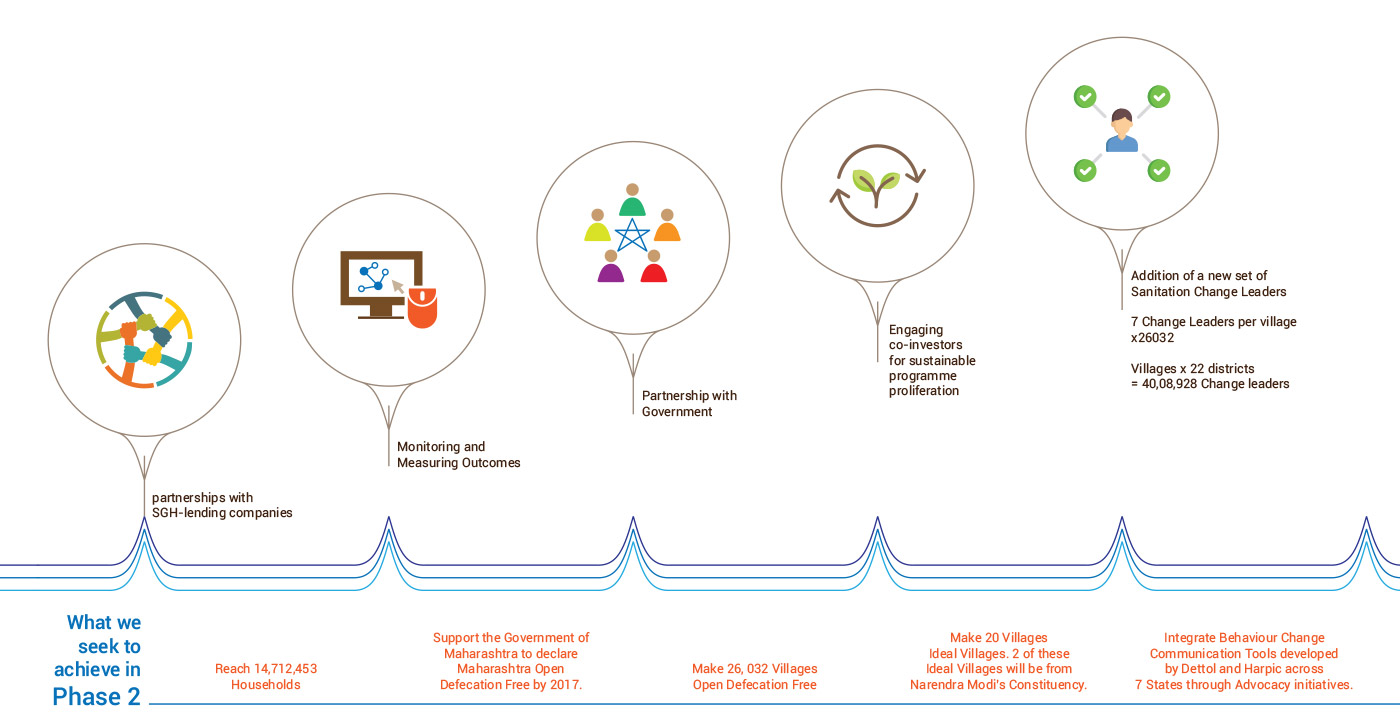

The Prime Minister of India, Shri Narendra Modi launched "Swachh Bharat Mission" on 2nd October, 2014 to achieve universal sanitation coverage and eradicate open defecation from the country by 2019, as a tribute to the 150th birth anniversary of Mahatma Gandhi. The programme is being implemented across the country as a national movement with a top priority for behaviour change among people regarding use of toilet for better health, hygiene and sanitation practices.
In order to support & compliment 'Swachh Bharat Mission', RB initiated a campaign "Dettol Banega Swasth India" in 2015 which is powered by Jagran Pehel in 200 villages of UP and Bihar to make them Open Defecation Free Zones.
The initiative was well appreciated by the Prime Minister of India, Shri Narendra Modi, during "Man Ki Baat" in October, 2015 and also by the key ministries for its unique approach - Changing Mindsets - Creating Sanitation Change Leaders, at grassroots level. Using innovative Interactive Educational Communication (IEC) tools & Behaviour Change Communication (BCC) tools, the initiative aims to drive behaviour change of the community through key stakeholders, such as Panchayati Raj Institute (PRI) Members, Front-line Workers (ASHA/AWW/ANM), Natural & Faith Based Leaders and Mothers & Caregivers. These stakeholders are anchors to spread the message to the wider audience.

66% of population or over 63 million households in Bihar, Haryana, Madhya Pradesh, Rajasthan and Uttar Pradesh would most likely defecate in the open even if they are provided with toilets. Out of these 5, Bihar and UP are high focus states due to high mortality rate among children (0-5yrs) caused by cholera, typhoid, hepatitis, polio, diarrhoea, pneumonia, worm infestation, stunting, malnutrition etc. which can be prevented through basic hygiene & sanitation practices and behaviour change.
The program coverage in Phase 2 is across 7 states with the immediate focus of supporting the Maharashtra Government to declare the state as Open Defecation Free by the end of 2017.


To create change agents in the communities, it's important to build an environment in which they are open to understand, accept and implement best practices which are being proposed to them.
Therefore, to empower the community, this initiative reinforces an environment by creating knowledge and awareness through mass media, health and hygiene charters at public health centres etc.
With a 360 degree approach, grassroots governance structures are being strengthened and change leaders are identified from PRIs/N&FBLs/FLWs/Mothers & Caregivers/Community. With the help of training, capacity building and appropriate BCC/IEC tools, they and equipped to induce good sanitation practice in community to make these 200 villages ODF zones and to create Sanitation Change Leaders.
With a holistic approach, the initiative works wih four pillars of change leaders:
--
Panchayati Raj Institution Members
--
Natural & Faith-Based Leaders
--
Frontline Health Workers
--
Mothers & Caregivers/Community
